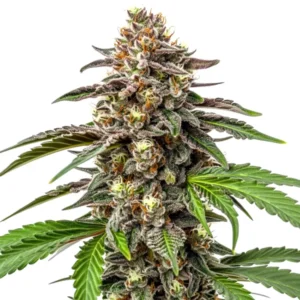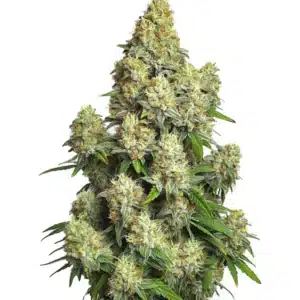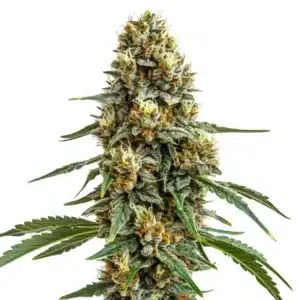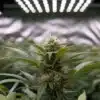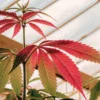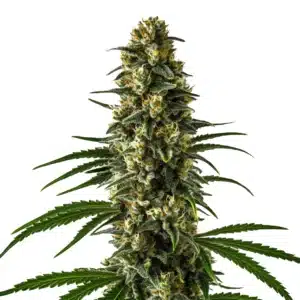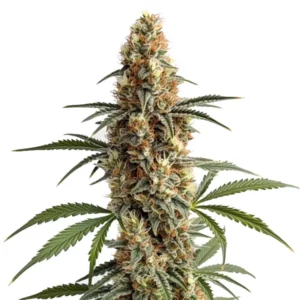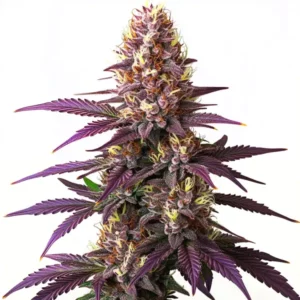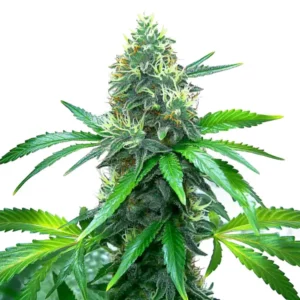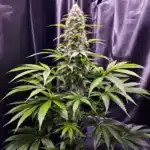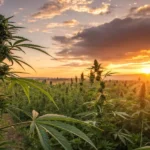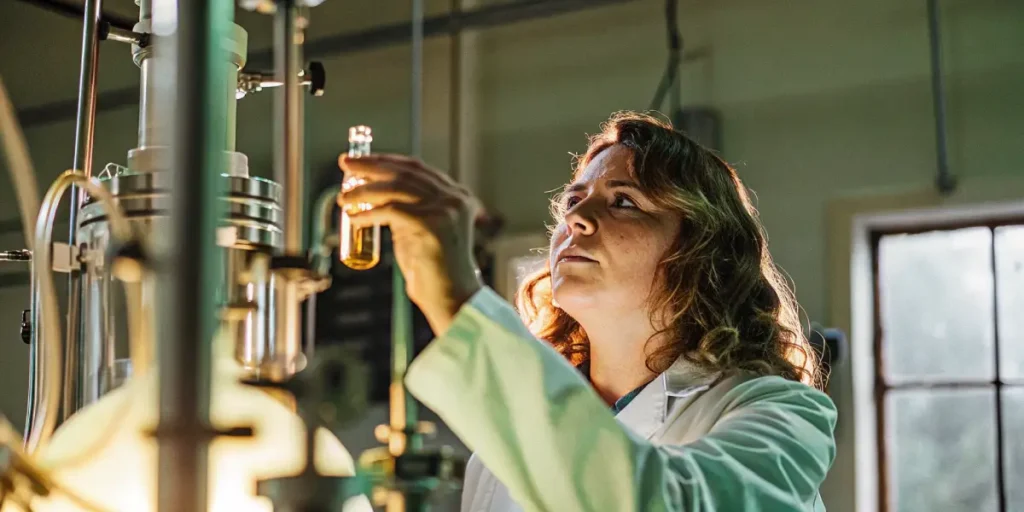
Stress-induced THC Production: Myth or Science?
Many growers and enthusiasts often ask whether stress-induced THC production is a myth or science. This question has sparked debates amongst both novice and veteran cannabis cultivators. The idea that putting a cannabis plant under stress could potentially increase its THC levels is intriguing, but how much of it is backed by scientific evidence?
To understand the concept of stress-induced THC production, we need to look into the stress factors that can influence cannabis plants. Stress, in this context, refers to any external condition that disrupts the plant’s normal growth. These can include environmental factors like temperature fluctuations, light exposure, and nutrient imbalance. But does stress actually lead to higher THC production?
Recommended Strains
GG4
|
|
THC | 27% (High) |
|
|
Type | Feminized |
|
|
Yield | High |
|
|
Phenotype | 40% Indica / 60% Sativa |
Blue Dream
|
|
THC | 17% - 24% (Medium) |
|
|
Type | Feminized |
|
|
Yield | High |
|
|
Phenotype | 50% Indica / 50% Sativa |
While some growers swear by techniques that stress plants to boost THC levels, others remain skeptical. Scientific studies on stress and THC levels provide mixed results. Let’s dive deeper to separate myths about stress-induced THC in cannabis from reality.
Scientific Evidence on Stress and THC Levels
Research on stress-induced THC production scientific evidence has been ongoing for years. Some studies suggest that certain stress factors might indeed lead to higher THC levels. For instance, one theory is that when a plant is under stress, it might produce more THC as a defense mechanism. This is because THC can act as a protective barrier against environmental stressors.
However, not all stress factors lead to increased THC. In fact, some might even have adverse effects on the plant’s overall health. It’s essential to differentiate between beneficial stress and harmful stress. The key is to apply controlled stress without pushing the plant beyond its limits.
Furthermore, recent studies have shown that while some stressors can enhance THC production, others may inadvertently affect other cannabinoid profiles. This variation emphasizes the need for a nuanced approach when experimenting with stress-induced THC production. Knowing the balance between beneficial and detrimental stress is crucial for optimizing cannabis THC levels under stress conditions.
Stress-induced THC production: myth or science? The answer lies in comprehensive research. Scientific investigations continue to explore the intricate relationship between stress factors and THC levels. As our knowing grows, cultivators can implement more effective strategies to enhance THC production without compromising plant health.
THC Production Stress Factors Research
When examining THC production stress factors research, it’s clear that light stress is often considered beneficial. Many growers employ techniques like light stress training (LST) to encourage their plants to produce more THC. By manipulating the light exposure, they aim to mimic natural stress conditions without causing harm.
Temperature stress is another factor that growers experiment with. Some believe that maintaining a slightly cooler temperature during the flowering stage can increase THC production. However, this needs to be done carefully, as extreme temperatures can damage the plant.
Another aspect of THC production stress factors research involves analyzing the impact of water stress. Controlled drought conditions have been observed to increase resin production in some strains. Nevertheless, this practice requires careful monitoring to prevent long-term harm to the plant’s health.
The interplay between various stress factors and their cumulative effects on THC levels is a subject of ongoing research. Knowing the synergy between these factors can provide deeper insights into optimizing conditions for maximum THC yield, further addressing the query of stress-induced THC production: myth or science?
Promos & Deals
Practical Examples of Stress-Induced THC Production
Experienced growers often share practical examples of how they have successfully increased THC levels through stress. One popular method is the “super cropping” technique. This involves gently bending the stems without breaking them, creating small amounts of stress that can potentially boost THC.
Another real-life example is the use of controlled drought conditions. By limiting water during specific growth phases, some growers claim to have increased the resin and THC content. However, it’s important to monitor the plant closely to avoid irreversible damage.
In addition to these methods, some cultivators have experimented with pruning techniques to create stress. By selectively removing certain leaves or branches, growers aim to redirect the plant’s energy toward THC production, potentially elevating cannabis THC levels under stress conditions.
Despite these anecdotal successes, it’s crucial to remember that what works for one strain might not work for another. The variability in responses underscores the importance of knowing the genetic makeup and specific needs of each cannabis strain when applying stress techniques.
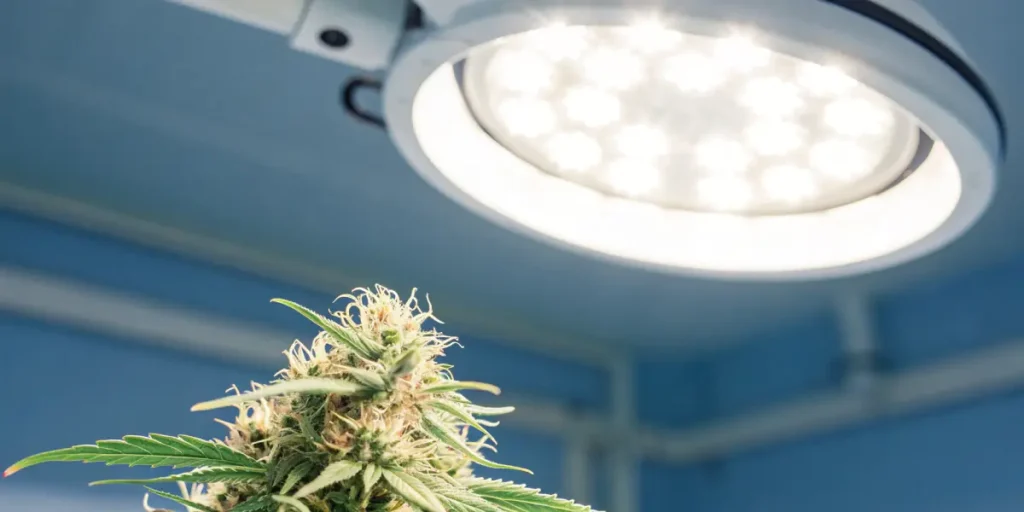
Recommended Cannabis Strains
For those interested in experimenting with stress-induced THC production, selecting the right strain is crucial. Some strains are more resilient to stress and can potentially yield higher THC levels under specific conditions.
- GG4: Known for its high THC content, this strain is a favorite among growers looking to test stress techniques. Its robust nature makes it adaptable to various stress factors.
- Blue Dream: A balanced hybrid that responds well to light stress and super cropping. It’s an excellent choice for those new to stress techniques.
- Girl Scout Cookies: This strain has shown resilience in nutrient stress experiments, making it a suitable candidate for advanced growers.
Beyond these popular choices, there are numerous other strains worth exploring for stress-induced THC production. Strains like Northern Lights and OG Kush also demonstrate promising adaptability to stress, offering alternative options for dedicated cultivators.
As research on cannabis THC levels under stress conditions expands, breeders are likely to develop new strains specifically designed to thrive under controlled stress. This evolution in cannabis cultivation presents exciting opportunities for growers to enhance THC production through innovative methods.
Myths About Stress-Induced THC in Cannabis
Despite ongoing research, many myths about stress-induced THC in cannabis persist. One common misconception is that any stress will automatically boost THC levels. As discussed, not all stress is beneficial, and some can harm the plant.
Another myth is that stress techniques guarantee higher THC yields regardless of strain. In reality, genetics play a significant role, and not all strains will respond positively to stress. This highlights the importance of choosing strains like those available at Blimburn Seeds that are known for their THC potential.
Additional myths about stress-induced THC in cannabis include the belief that stress can replace traditional cultivation techniques. However, stress should be viewed as a supplement to standard practices, not a substitute. Successful growers integrate stress techniques into a holistic approach to cannabis cultivation.
Moreover, some myths suggest that stress can consistently replicate high THC levels across different growing environments. The reality is that environmental variables significantly affect outcomes, making it essential for growers to adapt their methods to specific conditions and strains.
Scientific Studies on Stress and THC Levels
Scientific studies on stress and THC levels are crucial for knowing the potential benefits and risks. These studies often explore how different stress factors affect cannabinoid profiles, helping growers make informed decisions.
For instance, research into light stress has shown promising results in enhancing THC levels without compromising plant health. However, more studies are needed to fully understand the long-term effects of various stress techniques.
Recent scientific studies on stress and THC levels have also begun to explore the molecular responses of cannabis plants to stress. By examining gene expression patterns, researchers aim to uncover the mechanisms behind THC production in response to stress.
The ongoing advancements in stress-induced THC production scientific evidence are setting the stage for more refined cultivation strategies. As the body of knowledge expands, growers can leverage these insights to maximize THC yields while maintaining plant vigor and health.
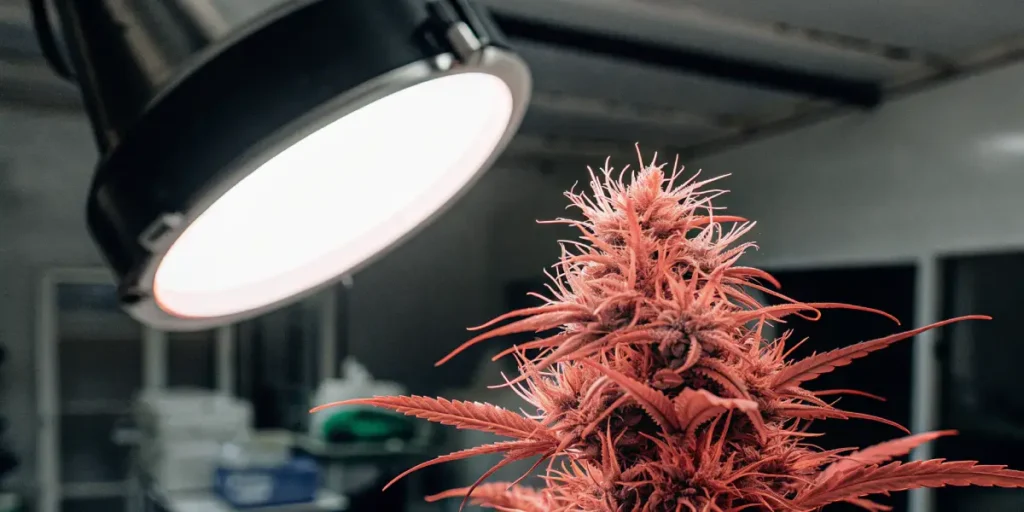
FAQs
What is stress-induced THC production?
Stress-induced THC production refers to the idea that certain stress factors can increase THC levels in cannabis plants. While some stress factors might trigger THC production, it’s crucial to differentiate between types of stress. Controlled stress can potentially enhance THC, but excessive stress can harm the plant.
Growers often experiment with light, temperature, and nutrient stress to see how their plants react. However, not all strains respond the same way, and results can vary based on genetics and environmental conditions.
Knowing the nuances of stress-induced THC production involves recognizing the unique responses of different strains. By tailoring stress techniques to specific genetic profiles, growers can optimize outcomes and avoid detrimental effects.
The question of stress-induced THC production: myth or science? continues to inspire inquiry and experimentation. With ongoing research and a strategic approach, cultivators can unlock new potential in cannabis cultivation.
Is there scientific evidence for stress-induced THC production?
Yes, there is some scientific evidence supporting stress-induced THC production scientific evidence. Studies have shown that certain stress factors, like light stress, can increase THC levels. However, research is still ongoing, and results can vary.
It’s important to approach stress techniques with care and understand the specific needs of each strain. Experimenting with different stress factors can help growers find what works best for their plants.
As scientific studies on stress and THC levels continue to evolve, they provide valuable insights into the conditions that promote optimal THC production. These findings are crucial for growers seeking to enhance their cultivation practices.
By bridging the gap between scientific evidence and practical application, cultivators can refine their methods to achieve consistent and significant improvements in THC levels, addressing the debate of stress-induced THC production: myth or science?
Which stress factors are beneficial for THC production?
Beneficial stress factors for THC production include light stress, temperature stress, and controlled nutrient stress. Light stress, such as light stress training, can encourage plants to produce more THC without causing harm.
Temperature stress, when managed properly, can also be beneficial. Cooler temperatures during the flowering stage might help increase THC levels. However, it’s essential to avoid extreme conditions that could damage the plant.
Besides to these factors, humidity levels can also play a role in stress-induced THC production. Adjusting humidity to mimic natural stress conditions may enhance resin production in specific strains.
Knowing the interplay between these stress factors and their impact on cannabis THC levels under stress conditions is key to maximizing potential. Careful experimentation and observation can yield valuable insights into effective cultivation strategies.
Can all cannabis strains benefit from stress-induced THC techniques?
Not all cannabis strains will benefit from stress-induced THC techniques. Genetics play a significant role in how a plant responds to stress. Some strains are more resilient and can handle stress better than others.
Strains like GG4, Blue Dream, and Girl Scout Cookies are known for their adaptability and high THC potential. These strains, available at Blimburn Seeds, are excellent choices for growers looking to experiment with stress techniques.
While some strains thrive under stress, others may experience negative effects, highlighting the importance of strain selection in stress-induced THC production. Tailoring techniques to the genetic profile of the strain can optimize results and minimize potential harm.
As new strains are developed and more research becomes available, growers will have access to an expanding array of options for enhancing THC production through stress techniques, further exploring the question of stress-induced THC production: myth or science?
Are there risks associated with stress techniques for THC production?
Yes, there are risks associated with stress techniques for THC production. Excessive stress can damage the plant, reduce yields, and negatively impact overall health. It’s crucial to apply stress in a controlled manner and monitor the plant’s reaction carefully.
Knowing the specific needs of each strain and experimenting with caution can help minimize risks. Growers should focus on maintaining a healthy balance to ensure successful outcomes in THC production.
Additional risks include potential long-term effects on plant health, such as increased susceptibility to pests and diseases. Careful management of stress levels is essential to prevent these adverse outcomes.
By combining scientific studies on stress and THC levels with practical experience, growers can navigate these risks effectively. This approach enables cultivators to achieve the desired increases in THC levels while maintaining plant vitality.





